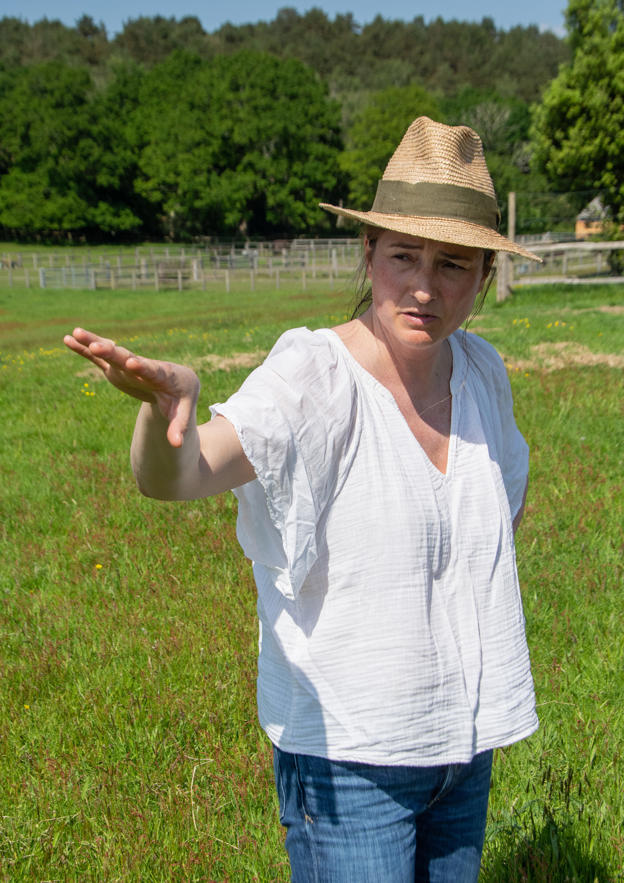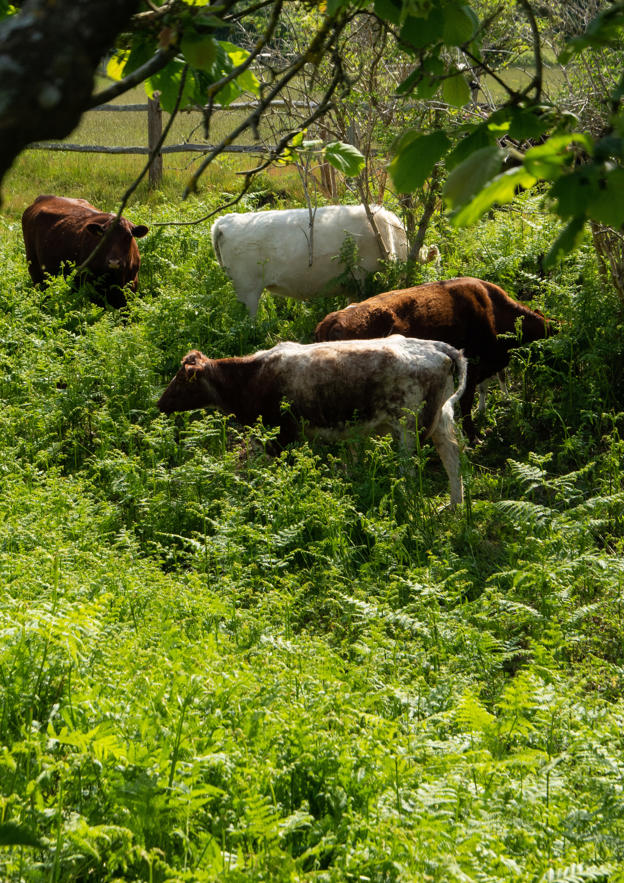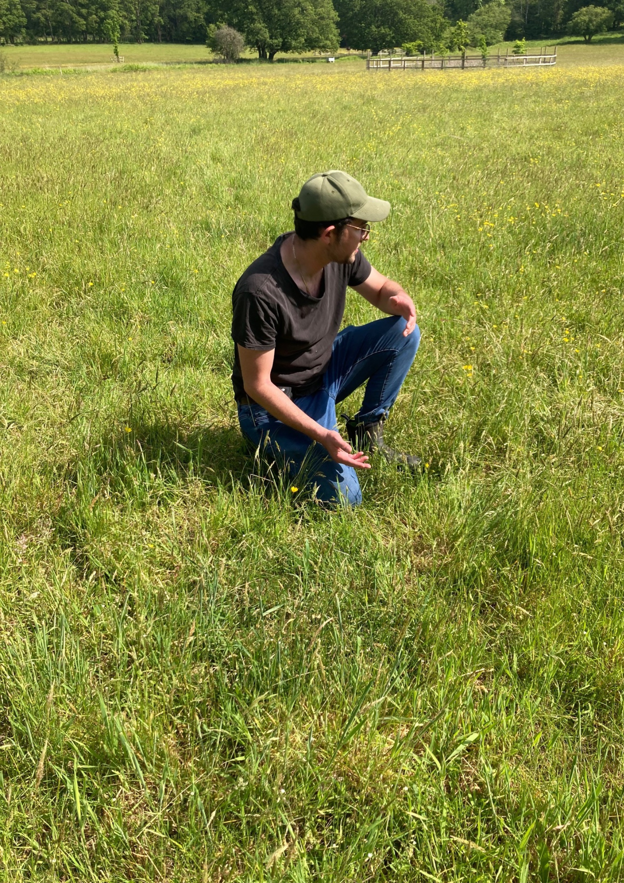On a glorious May afternoon PeCAN Trustees went to meet Bianca Pitt and Brett Sacks who run a regenerative farm and re-naturing project at Hoyle Farm and the Lavington Estate, southeast of Midhurst. We were invited to a guided tour of some of Hoyle Farm to get a glimpse into the realities faced by landowners who wish to improve their land for nature and improve carbon sequestration, and still make a living from it.
We soon understood that on this farm, these people are not wildlife gardening, they are not tinkering at the edges. A project on this scale is a long, slow process involving a great deal of outside expertise. In addition, our increasingly unpredictable climate and the uncertain politics of agriculture, can hijack the bravest efforts. Above all, we soon realised this kind of project takes special people who have vision, determination, a willingness to get things wrong, and above all, an urgent need to help our planet survive for future generations.

Bianca Pitt is a ClientEarth legal advisor. She understands the full picture of what we face with climate change and she knows how healthy, biodiverse, organic land management has a huge role to play in ameliorating its worst effects. She and her husband James bought the farm in 2020. They then teamed up with Brett and his wife Katie, likeminded entrepreneurs determined to make a difference, though none of them has a farming background.
Hoyle Farm is a 100 hectare farm that was previously a polo pony livery. Much of the fields were "horse-sick" or poached, with bare patches. But the pastures had not been "improved" with seeding of lush grasses, nor artificially fertilised, and they had remained uncultivated for years, so actually, this was an almost ideal base on which to start a re-naturing project. The baseline here is acid grassland with a bedrock of Lower Greensand, which gives rise to naturally poor, free-draining soils that play host to particular plant assemblages. It is easy to see from the picture of the old paddocks, where bare soil has been colonised by an abundance of sheep's sorrel, with its reddish flower spikes. Some of these areas are being left to regenerate at their own pace whilst others have been over-sown with native meadow species.

The farm is bisected by a tributary of the River Rother, and woodland, some planted, follows the stream. Elsewhere the farm is a parkland picture of paddocks and individual trees from young to very old. New hedges were planted a few years ago and have been allowed to 'grow out' and the spread of scrub such as blackthorn is encouraged in some areas. Bianca explained how difficult it was to establish new trees and hedges. She said that absolutely all new planting must be protected from deer - even the hedgerows were bounded on both sides by deer-fencing.
Brett and Katie are partners in a food company onsite - Slow Grown Farm, and like Bianca, they are dedicated to regenerative agriculture. They produce high quality nutritionally dense food products from just a few animals, which are all completely pasture-fed. No cereal or soya food supplements are fed. Brett explained their approach to the grazing areas, which are managed primarily to restore soils not for wild flowers, yet still managed good plant diversity. Their small dairy herd of redpoll and dairy short-horn cattle is also able to graze within the wooded areas where they benefit from shade. The cows are allowed onto the rich grass meadow areas in short bursts (“mob grazing”) where they take the tops off the taller plants, leaving flowering species below to seed. This forms a 'thatch' over the soil, protecting it from drying out and nutrifying the pasture. In the damper zones, even within the grazed areas, there was plenty of plant diversity. We found lesser stitchwort, germander speedwell, common vetch, creeping buttercup and the less common hoary cinquefoil.

Insect biodiversity is very high on the farm. Entomologist Graeme Lyons visited last year to survey for invertebrates a number of times. He says he recorded his highest number ever of 'field' insects at Hoyle Farm, 367 species, of which 32 were rarities, an insect assemblage he describes as "closer to a nature reserve than a farm".
Brett then showed us the milking parlour and cheese manufacturing area. He explained how it would be pointless to sell the milk wholesale from this special small herd given the price per litre that would fetch. Instead, Slow Grown Farm adds value by producing cheese, some fresh and some matured, which can sell at a premium owing to the organic, rich pasture the cows graze on. In line with their ethical aims, the cows suckle their young until naturally weaned. They are milked only once a day with their calves accompanying them to the parlour, where their presence helps to "let down" the milk.
We passed a dense woodland plantation which was home to a herd of young black and saddle-back pigs who were having great fun rootling up the stolons (roots) of bracken. These farm animals are excellent environmental managers! The pigs fatten naturally and slowly, foraging over 10 acres of woodland, and after a year, they are turned into fine English charcuterie.
You can find out more about this inspiring farming method here.
Slow Grown Farm shop operates from Hoyle Farm weekly during the summer. See their produce here.
You can also join their mailing list to receive news about farm walks and tasting events.




